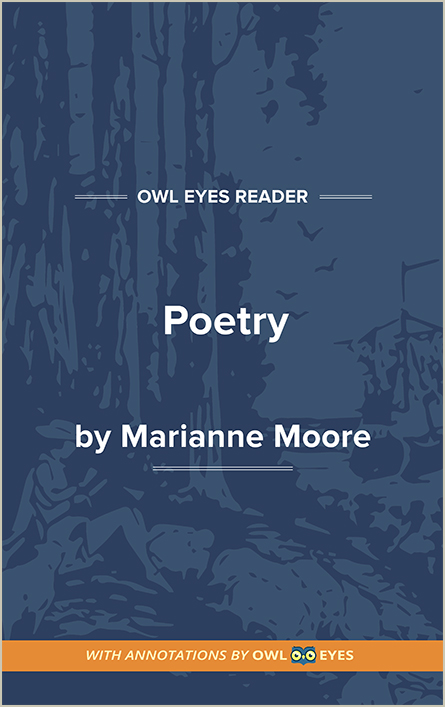Analysis Pages
Themes in Poetry
Language as a means of delivering physical feeling: Moore’s speaker claims that language and form in poetry can truly produce a physical reaction or response in readers. This ability for physical, rather than intellectual, stimulation, is the real power of poetry.
The Despotism of Poetry Scholars: Moore sets up two sides of poetry: the poetry critics who pursue the “high-minded interpretation” and others who physically feel a “genuine” response to poetry. Throughout the poem, Moore argues that physical responses to poetry are more important than intellectual ones.
Themes Examples in Poetry:
Poetry
🔒"the raw material of poetry in all its rawness, and that which is on the other hand, genuine..." See in text (Poetry)
"“literalists of the imagination”..." See in text (Poetry)
"by half poets, the result is not poetry,..." See in text (Poetry)
"twinkling his skin..." See in text (Poetry)
" Hands that can grasp, eyes that can dilate, hair that can rise..." See in text (Poetry)
"insolence and triviality..." See in text (Poetry)

